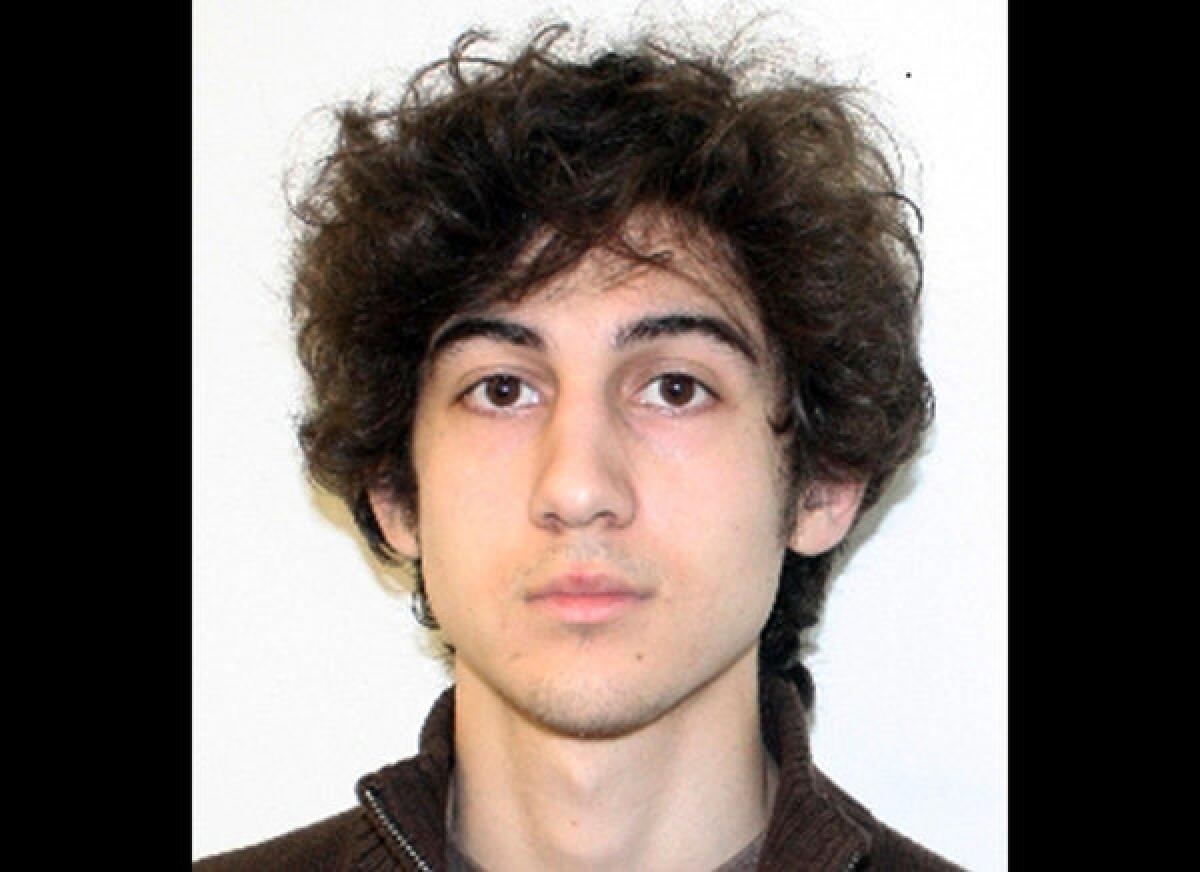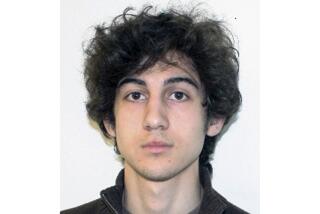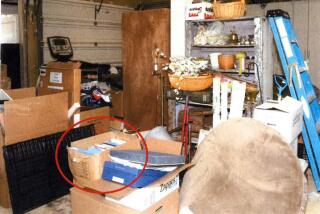Alleged Boston bomber disposed of evidence, Holder memo says

WASHINGTON — Dzhokhar Tsarnaev, who is charged with carrying out the bombings last April at the Boston Marathon, disposed of key evidence after the attack by “discarding a remaining bomb detonator and smashing his cellphones,” according to an internal memo approved by Atty. Gen. Eric H. Holder Jr. made public Wednesday.
The memo, written in August to the director of the U.S. Bureau of Prisons to justify the imposition of harsh detention restrictions on Tsarnaev, also said that he and his brother, Tamerlan Tsarnaev, “made additional bombs” after the lethal blasts and persuaded others to “attempt to destroy evidence related to the attack.”
Dzhokhar Tsarnaev also told FBI agents upon his arrest that he remained “committed to jihad and expressed hope that his actions would inspire others to engage in violent jihad,” according to the memo from Holder.
FULL COVERAGE: Boston Marathon bombing
Holder’s memo said the Tsarnaev brothers were directly “inspired” to detonate the two bombs during the marathon by radicalized American citizen Anwar Awlaki, who was killed in a U.S. drone strike in Yemen in September 2011, and that they “used bomb-making instructions from ‘Inspire,’ an Al Qaeda publication” printed in English.
The attorney general’s memo said the conspiracy was so elaborate that Dzhokhar “employed operational tradecraft” and “purchased a dedicated cellphone” to secretly communicate with his older brother about the upcoming bombings. Tamerlan Tsarnaev was killed in a shootout with police several days after the April 15 bombings in Boston, which killed three people and injured dozens.
The memo was dated Aug. 27 and sent to Charles E. Samuels Jr., director of the federal Bureau of Prisons.
Tsarnaev, who has pleaded not guilty, is being held at the prison medical center in Ayer, Mass. Holder used his authority as the top federal law enforcement official to impose strict detention measures to prevent Tsarnaev, a 20-year-old Chechen immigrant, from communicating with anyone outside the prison before his trial in U.S. District Court in Boston.
Any communications, Holder’s memo said, could “result in death or serious bodily injury” to others, and noted that Tsarnaev identified himself to the FBI as a committed terrorist. “There is no indication that Tsarnaev’s intentions have changed since,” he said.
Tsarnaev’s attorneys included the memo in a court motion filed Wednesday asking a federal judge to lift the restrictions.
ALSO:No new trial for Jerry Sandusky
Extreme motorcycle road rage caught on tape
Government shutdown: no panda cam, no parks
Follow L.A. Times National on Twitter
More to Read
Sign up for Essential California
The most important California stories and recommendations in your inbox every morning.
You may occasionally receive promotional content from the Los Angeles Times.











